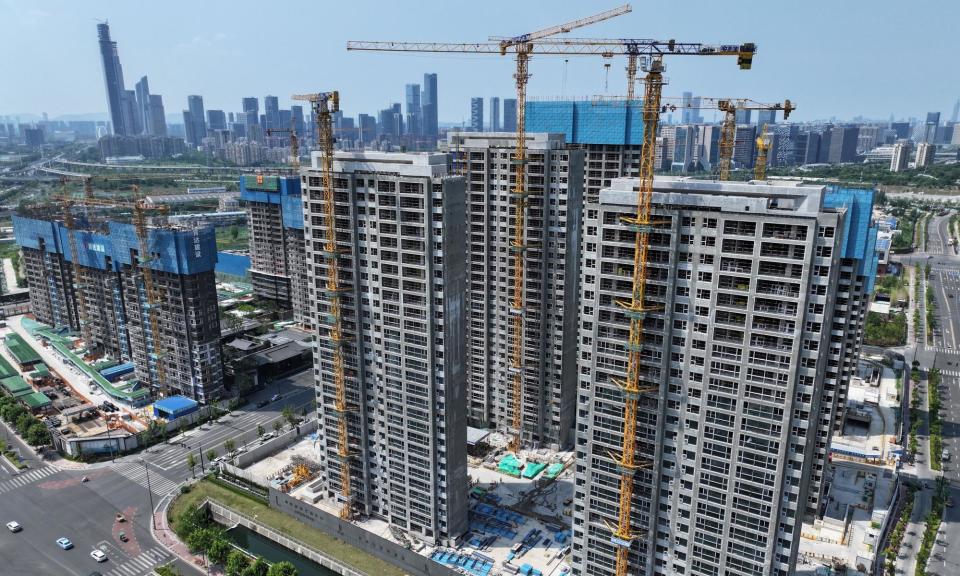China new home prices drop at fastest rate in nearly a decade

House prices in China slumped at the fastest rate in almost 10 years in May as a glut of properties on the market hit demand, despite renewed efforts by the government to prop up the sector.
The price of new homes in 70 cities, excluding subsidised housing, fell by 0.7% from April. This was the steepest drop since October 2014, according to National Bureau of Statistics (NBS) figures posted on Monday. Values of existing homes fell by 1%, the steepest drop since China started using its current data collection method in 2011.
The disappointing data comes despite the most ambitious attempt yet by the government to revive house prices in China. In May, the People’s Bank of China scrapped the minimum rate of interest and reduced down-payment ratios to 15% for first-time buyers and 25% for second homes. It also created a 300bn yuan (£32.8bn) facility to support local state-owned companies to buy homes at reasonable prices.
Related: China’s glut of idle property causes headache for the government
Investors say the amount the central bank has invested may not be enough. Measures in several cities allowing local governments to buy up excess properties from developers have made slow progress in deploying allocated funds. The oversupply of homes on the market has hit prices, making people less likely to invest.
Prices also declined from a year earlier. New house prices dropped 3.9%, according to Reuters.
Liu Aihua, a spokesperson for the NBS, told a media briefing on Monday that the property market was undergoing adjustment and it would take some time for policy measures to kick in.
Policymakers have been attempting to rein in the oversupply of housing, and support debt-laden developers since the market went into freefall in 2020, hit by the pandemic and a sudden regulatory crackdown on indebted lenders.
Related: China to cut mortgage rates as part of plan to prop up property market
China’s ailing property market reflects struggles in the wider economy. Industrial output grew more slowly in May at 5.6% compared with 6.7% a year earlier. Economists were expecting growth of about 6%.
Retail sales beat expectations in May, however, climbing 3.7%. This was better than analyst expectations of 3% growth.
Ipek Ozkardeskaya, a senior analyst at Swissquote Bank, said gloomy economic data could prompt the Bank of China to cut interest rates to help demand. “The latest data showed that home prices there slid at a faster pace in May despite all the efforts that the Chinese government puts in to stop the bleeding, and industrial production slowed significantly more than expected, as well, during the same month,” she added.
“The People’s Bank of China is expected to maintain its rates unchanged this week, but some economists at Bloomberg believe that the week could bring a 10 basis point cut in China to prop things up.”

 Yahoo Finance
Yahoo Finance 